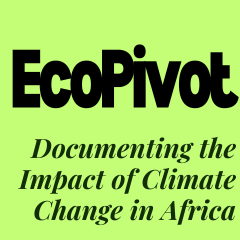The serene coastal town of Hammamet in Tunisia hosted a pivotal event from May 21 to 24, 2024, as key stakeholders from across the globe convened to advance dialogue and action on renewable energy integration in developing countries.
Co-hosted by the Climate Investment Funds (CIF) and the government of Tunisia, the “Integrating Renewables in Energy Transitions” event affirmed the urgent need for collaborative efforts in the face of global energy and climate challenges.

The event, part of CIF’s Renewable Energy Integration (REI) Program, aimed to bolster the transition of energy systems to accommodate increasing renewable energy generation.
Over three days, participants delved into a series of learning sessions and technical workshops covering essential topics such as transmission and distribution infrastructure, system flexibility, and peak load management.
The discussions highlighted the universal nature of the challenges faced by countries at various stages of renewable energy integration.
“The discussions were quite fruitful,” said Jimmy Pannett, co-lead of the REI. “Despite being in geographically different locations, countries face similar issues and challenges. More importantly, they all learn from each other. We saw Columbia saying they learned things from Kenya and lessons from South Asia influencing other regions. The need for creativity and adaptation was a recurring theme.”
Fethi Hanchi, Director General of Tunisia’s National Agency for Energy Conservation, emphasized the importance of cross-cutting and collaborative responses to the intertwined energy and climate challenges. “We must work together to address this energy challenge, which is inherently linked to the climate challenge. Therefore, we must intensify and multiply these initiatives to maximize the benefits of each other’s experiences,” he remarked in his closing address.“
Carlos Mollinedo, Chief Energy Economic Officer at the African Development Bank, shared insights on scaling up investments in renewable energy integration. “The Bank is fully committed to supporting African countries’ efforts to accelerate electricity access while advancing their transition to cleaner energy sources. Since 2000, we have committed a cumulated amount of $20 billion towards these twin goals, focusing increasingly on renewable energy, particularly hydro and solar, and supporting private sector investment through direct financing and technical assistance.”
As the world moves towards a cleaner energy future, events like the one in Hammamet serve as crucial milestones. They foster the exchange of ideas and strategies necessary to overcome the complex challenges of renewable energy integration, ensuring that developing nations can lead the charge in the global transition to sustainable energy.


